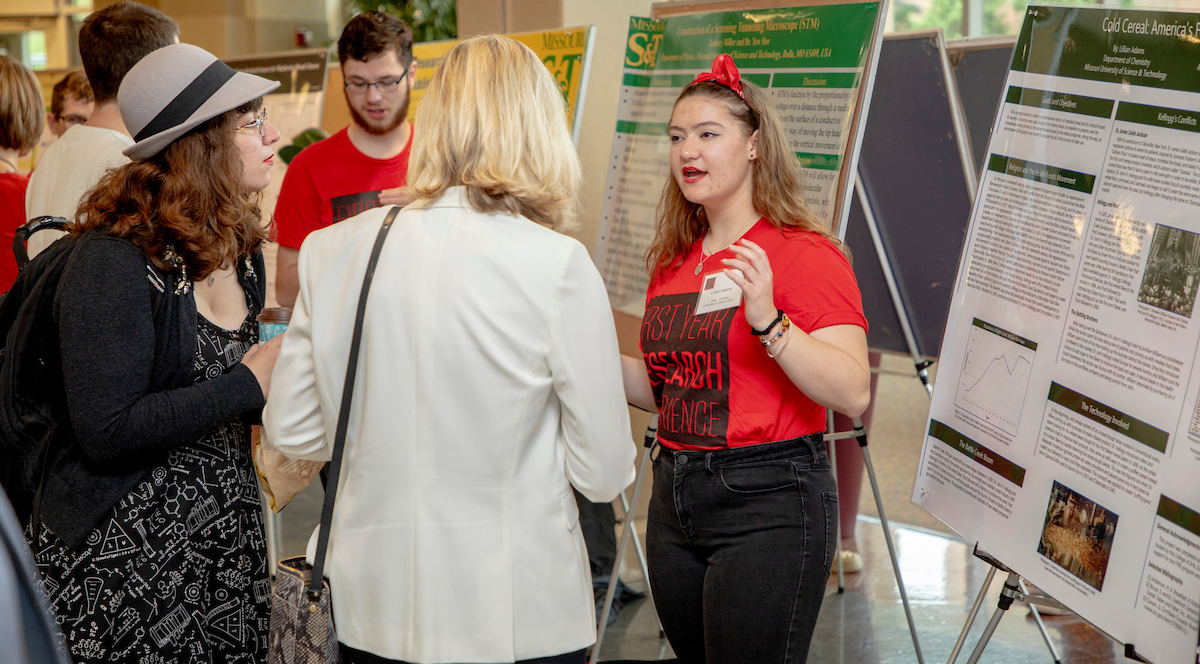Building Community & Careers in Public Interest Tech
Student Voices from across the PIT University Network
From the October 2024 PIT UNiverse Newsletter
As PIT-UN continues to grow its Tech for Change Student Network, we’re highlighting five students doing exceptional work to build community and career opportunities as they chart their paths in public interest technology (PIT).
To learn more about student work, opportunities or starting a Tech for Change Club on your campus:
- Visit the Tech for Change Student Clubs page
- Connect with Student Network Coordinator Nia Brazzell
- Let us know about an existing PIT club on your campus through this survey
- Apply for a fellowship with Coding it Forward, Govern for America, or U.S. Digital Corps
What is Public Interest Technology?
5 Keys to Institutionalizing PIT
What is PIT-UN?
Building PIT Community on Campus
Ting Fong Chen and Anjali Tandon, University of Michigan
Tech for Social Good (T4SG) at the University of Michigan is a student-led group that offers a non-evaluative and non-stressful environment to gain exposure to public interest technology through coding workshops, reading groups, and speaker series.
We provide hands-on PIT experiences through project teams where students can learn firsthand how to utilize their background in software, design, and data analysis to impact a local nonprofit. Examples of project teams include Arbor Advisor, which aims to ease the onboarding process for immigrants into Washtenaw County, Mich., and Maize and Blue Cupboard, an accessible platform to the university’s food pantry.
This year, we plan to extend that exposure beyond our direct T4SG community by hosting a Michigan-wide Civic Tech Hackathon to allow all students to see the benefits of PIT firsthand in a low-stress and collaborative setting.
Exploring Technology's Impacts (Ting Fong Chen)
Growing up in multicultural communities in Taiwan, Hong Kong, and Canada, I became interested in how cities are built and how technology shapes our relationship with cities, and that’s what I now study as an urban technology major. T4SG has helped me understand the layered assumptions and beliefs behind our digital systems.
Most of my work has been facilitating discussions around themes like algorithmic bias and predictive policing through Bytes of Good, where T4SG members present on specific practices and policies, shedding new light on ordinary technologies and encouraging reconsideration of technology’s impacts.
I am interested in public interest technology because I believe communities should actively participate in designing and governing technology. From an educational perspective, students should have a say in the STEM curriculum and can advocate for coursework on how to serve the public good. T4SG last year created a Course Guide that identifies courses across all departments that critically rethink technology in the broader social context.
From a civic standpoint, PIT enables collaborative problem-solving for local challenges. Technology is not the sole focus, but rather is a tool used within existing systems to help create a more inclusive, equitable, and resilient community.
Finding a Language, a Map, a Community (Anjali Tandon)
I entered college certain of two things: Public service was the best way to have an impact on people, and technology was the best way to do so at scale. I took political science and computer science courses to find the intersection between the two fields. However, I often left feeling isolated and lacking a clear road map to pursue my goals.
Public interest technology gave me the necessary vocabulary to explain my interests and, equally important, it gave me a community with which to do that. Entering into PIT spaces such as the Siegel Public Interest Technology Summer Fellowship at Princeton University and T4SG at University of Michigan was the first time I felt like I was speaking a common language with everyone else.
Now, as a senior majoring in information analysis, serving as the co-president of T4SG is how I share that experience by ensuring that Michigan students interested in PIT can explore the field and use their technical skill sets to aid communities beyond themselves.
My best PIT experiences have emphasized community and personal growth, and that is why I see T4SG and other student-centric spaces as the strongest way to create a real, long-lasting pipeline into PIT.
Connecting PIT Students to Public Service
Jennifer Wang, Brown University
Kayla Huang, Harvard College
While interning at the White House in fall 2023, during a meeting on tech policy initiatives, we heard from city and state government leaders that their primary challenge was talent and capacity; there just wasn’t enough money to hire tech policy staff. Meanwhile, we were regularly hearing from students who wanted to know how to get into tech policy.
We felt motivated to design a solution that would address both sides of the talent pipeline, and established the Paragon Policy Fellowship, which provides college students with opportunities to work on policy solutions for their state and local governments. We have recruited, mentored, and managed 32 organizing team members and 142 fellows, all volunteers.
Meeting the Need for Tech Policy Talent
Paragon aims to address three emerging needs in the technology policy arena:
1. Issues at the intersection of technology and government within the context of public policy and civic institutions.
2. Responsible governance frameworks that keep up with technology’s rapid developments and a growing new generation of public employees with both technical and policy expertise.
3. Tech policy opportunities for college students, especially those from historically underrepresented backgrounds.
By connecting students with state and local governments, we hope to empower the next generation to chart a career in technology policy and address the most pressing issues in their communities.
The first cohort of Paragon Fellows.
Early Results from the Paragon Fellowship
So far, we’ve supported dozens of projects for state and local government agencies. In just the first cohort, our work led to:
- Guidelines for the city of San José to mitigate the threat of deepfakes on communication with constituents.
- The first statewide, civil service-oriented AI education guideline for 40,000 Georgia government workers.
- Recommendations for increased, large language model-enabled translation services in St. Louis.
Fellows come out of Paragon with a foot in the policy door and a deeper understanding of the realities of working in local government.
Paragon, now sponsored by the Federation of American Scientists, has helped fellows make a genuine impact on their communities. In addition, the Paragon team is working to expand fiscal sponsorships and partnerships with more government agencies, academic institutions, and industry leaders. We are helping fellows publish their research at top-tier academic conferences. And over the summer, the Paragon fellows presented their projects to our staff members in the White House Office of Science and Technology Policy.
To keep up with Paragon’s latest updates, you can:
- Visit our website
- View our past projects
- Follow Paragon on LinkedIn for the latest fellowship updates
- Subscribe to Paragon’s newsletter for deep dives on fellowship projects
PIT Lessons for the Long Haul
Joel Yong, Google Public Policy Fellow at New America’s Open Technology Institute, and alum of Rhode Island School of Design.
I was born and raised in Los Angeles, where early exposure to its harsh inequalities brought me into advocacy work and social impact discourse. As I built my studies in college at the intersection of product design and public policy, I was fascinated by technology’s power to connect people and facilitate change at greater scales.
Coding it Forward Fellowship Experience
The Coding it Forward Fellowship with the U.S. Census Bureau in summer 2022 expanded my perspective on how technology can be used for access, democratization, and empowerment. I worked on a project looking at how the Census Bureau was collecting and disseminating data. A partner fellow and I co-created equitable solutions alongside nonprofits across the country, focusing on homelessness.
Our iterative process produced recommendations on three fronts:
1. Creating custom visualization tools so organizations can better compare and apply Census data to their organizational needs.
2. Designing more responsive census surveys that no longer asked people experiencing homelessness for data points like their home address.
3. Integrating data collection points at centralized community organizations such as food banks and shelters.
We developed prototypes that recontextualized a constituent’s user experience to encompass not only the websites they interact with, but also the policies that affect them, the services they receive, and the systems that define what resources are available to them.
This project was pivotal in shaping my PIT practice, as I learned that technology is just one component of building holistic solutions.
A prototype of custom visualization tools of U.S. Census data Joel Yong created during his Coding it Forward Fellowship.
Site render of a model Food Bank for Data Collection station.
Driving Towards Holistic Solutions
Since then, I’ve worked with Princeton University’s Center for Information Technology Policy and the U.S. Digital Service, and I’m now a Google Public Policy Fellow at New America. As I mature in the PIT space, one of the most profound lessons I’m still learning is how to pull the right levers of change. Had I known then at the Census Bureau what I know now, I would have done even more to find allies and champions to continue advocating for the work to be done after my term concluded. In PIT, especially in government where institutions are slow to change, it’s critical to find levers that can set up long-term success.
I’ve also learned that this work requires thick skin, as does any work dedicated to change. But I have met an incredible array of people who continue to inspire me and remind me why this work is important.
Mentors, colleagues, friends — the relationships I’ve grown in this space have been just as important to me as the work I’m able to do. Wherever I go, I hold confidence that technology unlocks its full potential when it is complemented with humanity.
As I continue to refine my PIT practice, I build upon my belief that technology is a powerful medium to make holistic solutions possible, facilitating a more galvanized, connected world.
Joel Yong’s TEDx talk at TEDxRISD.
Learn More & Get Involved in PIT Student Work
- Visit the Tech for Change Student Clubs page
- Connect with Student Network Coordinator Nia Brazzell
- Let us know about an existing PIT club on your campus through this survey
- Apply for a fellowship with Coding it Forward, Govern for America, or U.S. Digital Corps
Author Bios
Ting Fong Chen is a public transit enthusiast, inclusive designer, and passionate urbanist studying Urban Technology at the University of Michigan, Ann Arbor. An advocate for human-scaled, walkable neighborhoods, he is bilingual in Mandarin and English and strives to examine and appreciate cities to address urban conditions including safety, sustainability, and equity
Anjali Tandon is a student at the University of Michigan’s School of Information passionate about bridging the gaps between technologists and policymakers to create and regulate inclusive technologies so they best meet the end-user’s needs. She has engaged with PIT through a variety of roles on campus by creating data visualizations for analyzing exhibit efficacy at the University of Michigan Art Museum, organizing an AI & Justice symposium on behalf of and writing for the Michigan Technology Law Review, and co-leading Tech 4 Social Good to provide students a space to explore and engage with engineering ethics and civic tech firsthand.. Outside of school, she has worked in technology and venture capital, as well as at the Consumer Financial Protection Bureau, working to develop and apply industry perspectives on emerging technologies to consumer-driven advocacy and policy work
Kayla Huang is a Chicago native and a senior at Harvard College studying computer science and government. She is broadly interested in the intersection of tech, governance, and entrepreneurship and hopes to lead initiatives in this field in the future. After taking time off to work at the White House on tech policy, she co-founded the Paragon Policy Fellowship and has interned as an engineer at a variety of startups (Scale AI, AidKit, Watershed). She now conducts research at the Kempner Institute for the Study of Natural and Artificial Intelligence at Harvard University and the MIT Lincoln Laboratory with a focus on modeling techniques to support foreign policy decisions in civil conflicts.
Jennifer Wang, who hails from Harvard, Massachusetts, is a senior at Brown University studying computer science. She is interested in informing and influencing the development and governance of algorithmic systems. Her experience as a Coding it Forward fellow at the U.S. Census Bureau and data analytics intern in the Rhode Island state government during the COVID-19 pandemic inspired her decision to co-found the Paragon Policy Fellowship. More recently, she has worked at the White House Office of Science and Technology Policy, Brookings Institution, and Mozilla to advance the trustworthy development of AI and promote investments in public AI infrastructure.
Joel Yong is a Google Public Policy Fellow at New America’s Open Technology Institute, based in Washington, D.C. Otherwise, he studies the intersection of product design and public policy, having led the public interest student organization Design for America (RISD/Brown) and having worked with PIT-adjacent clubs such as Hack@Brown, 180 Degrees Consulting, and Brown Initiative for Policy. He continues to investigate technology as a means to holistically build better democracies and create infrastructures of public trust.
Subscribe to the PIT UNiverse Newsletter
Related Posts
Learn from Missouri S&T how to do political communication research to push for digital technologies that advance democracy
How PIT Prepares Students to Become Changemakers in Tech Institutionalizing PIT March, 2023 Author: …
Over 150 students gathered at the Tech for Change Hackathon to build community and build skills through hands-on workshops.



